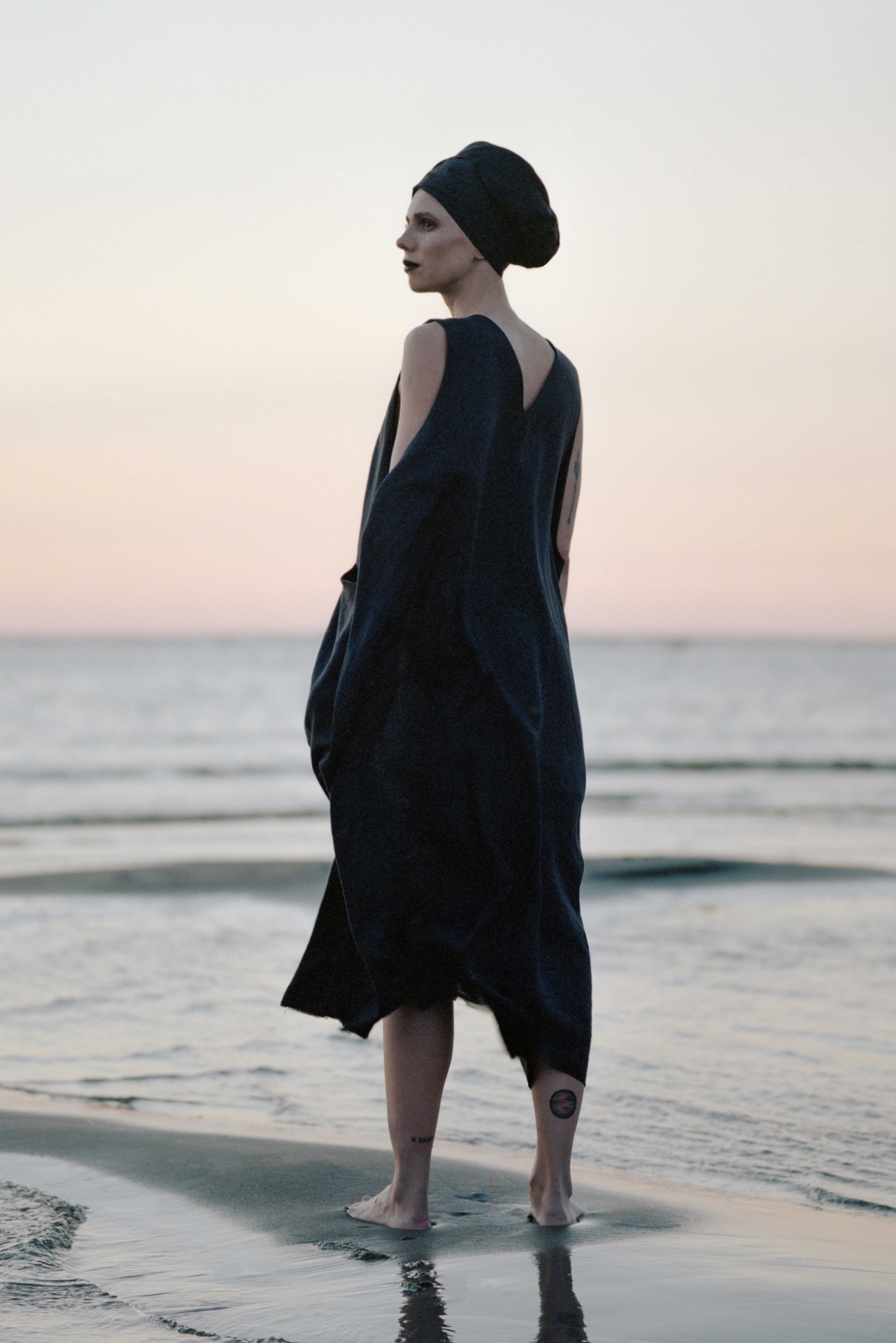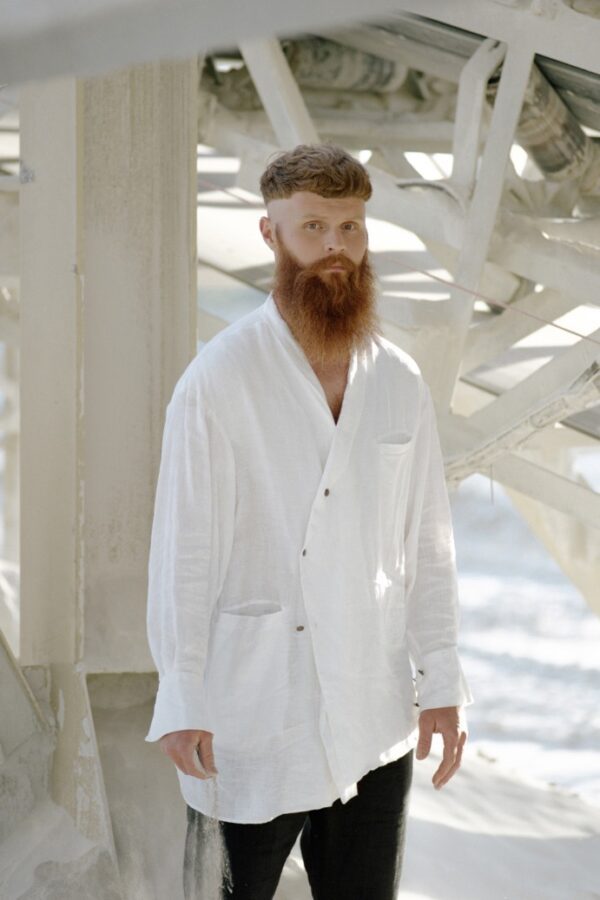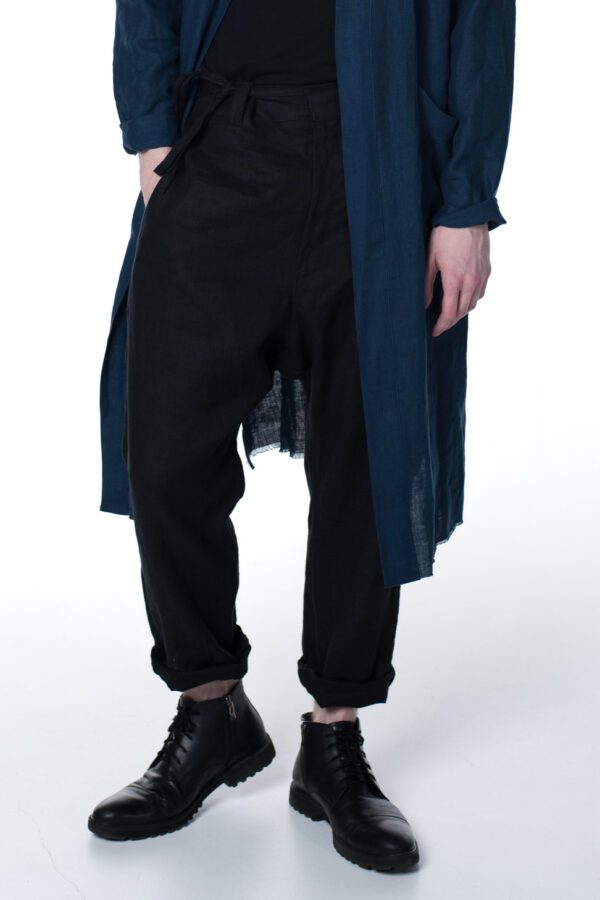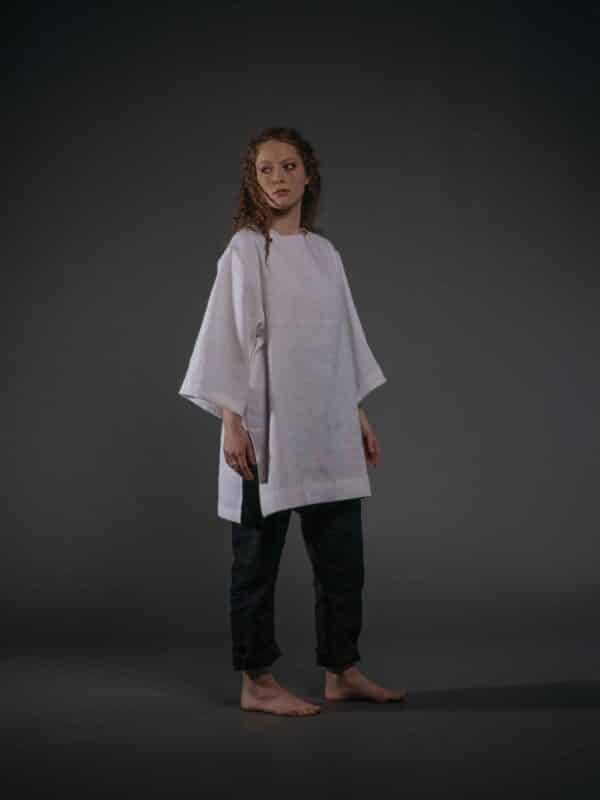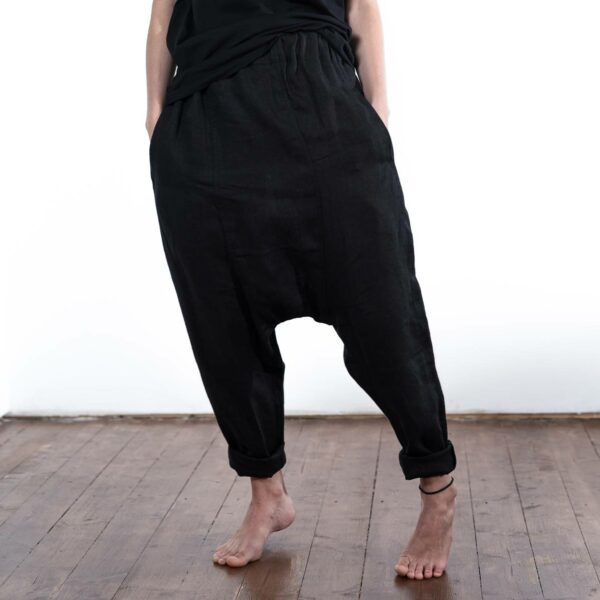Anu Rieberg is an Estonian slow fashion brand. Our design practice can be described through four concepts: earth-friendly fabrics, zero-waste design practice, comfort and timelessness. Behind every design is a personal story and therefore the clothing has the touch of the designer in it. This gives the wearer an opportunity to relate to the concepts behind design. Influenced by traditional Japanese clothing, our designs are for people who are trying to define themselves while searching for fine quality and meaningful messages behind clothing. In our designs, we focus on comfort by considering the fabric’s natural movement – through that, we leave extra space between the clothing and skin as an opportunity to create physical as well as mental space for the wearer. Added space gives the fabric an opportunity to fall into place naturally. This creates comfort and the possibility for each person to create a unique form of design by wearing the outfit.
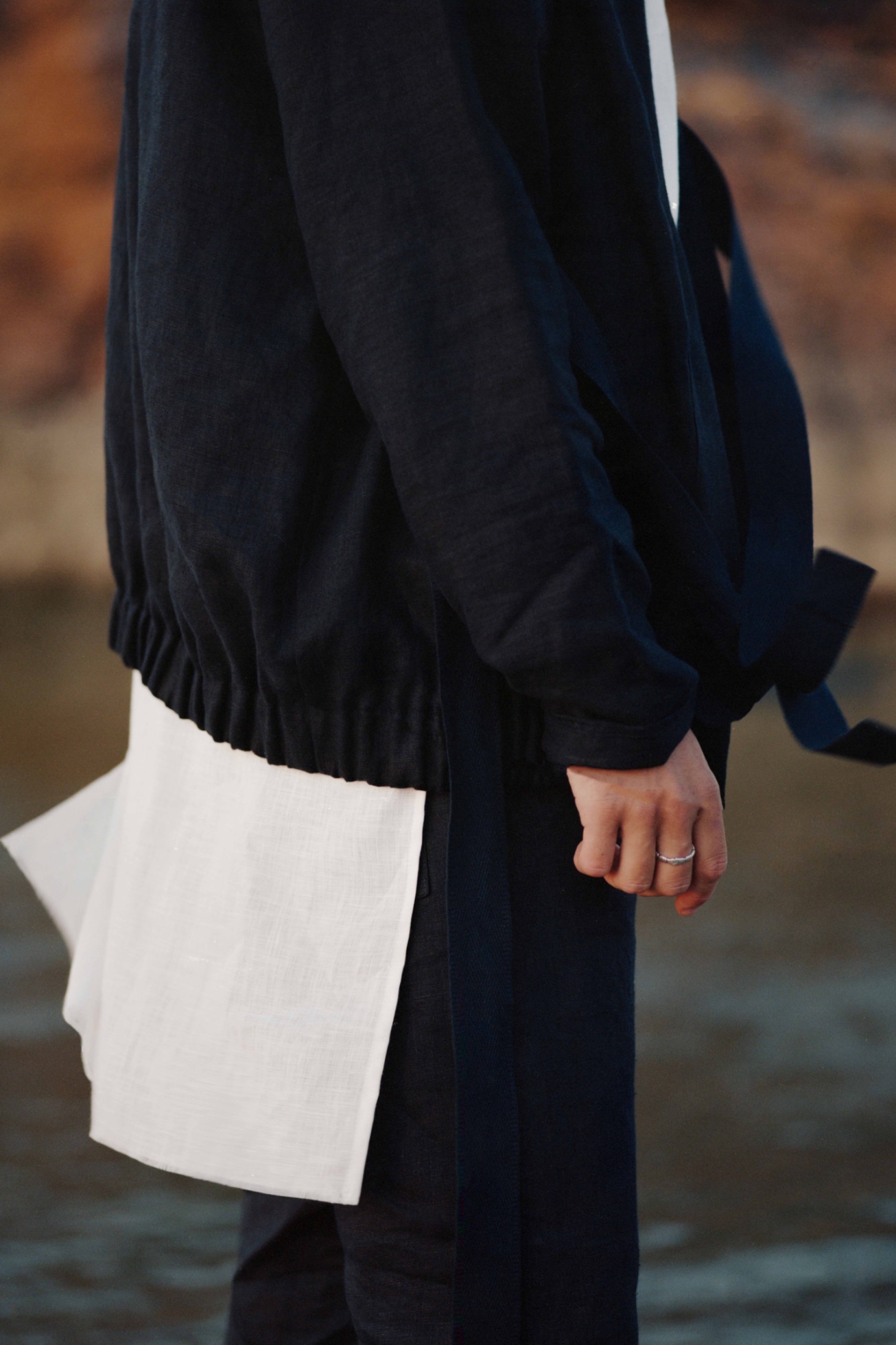
Anu Rieberg
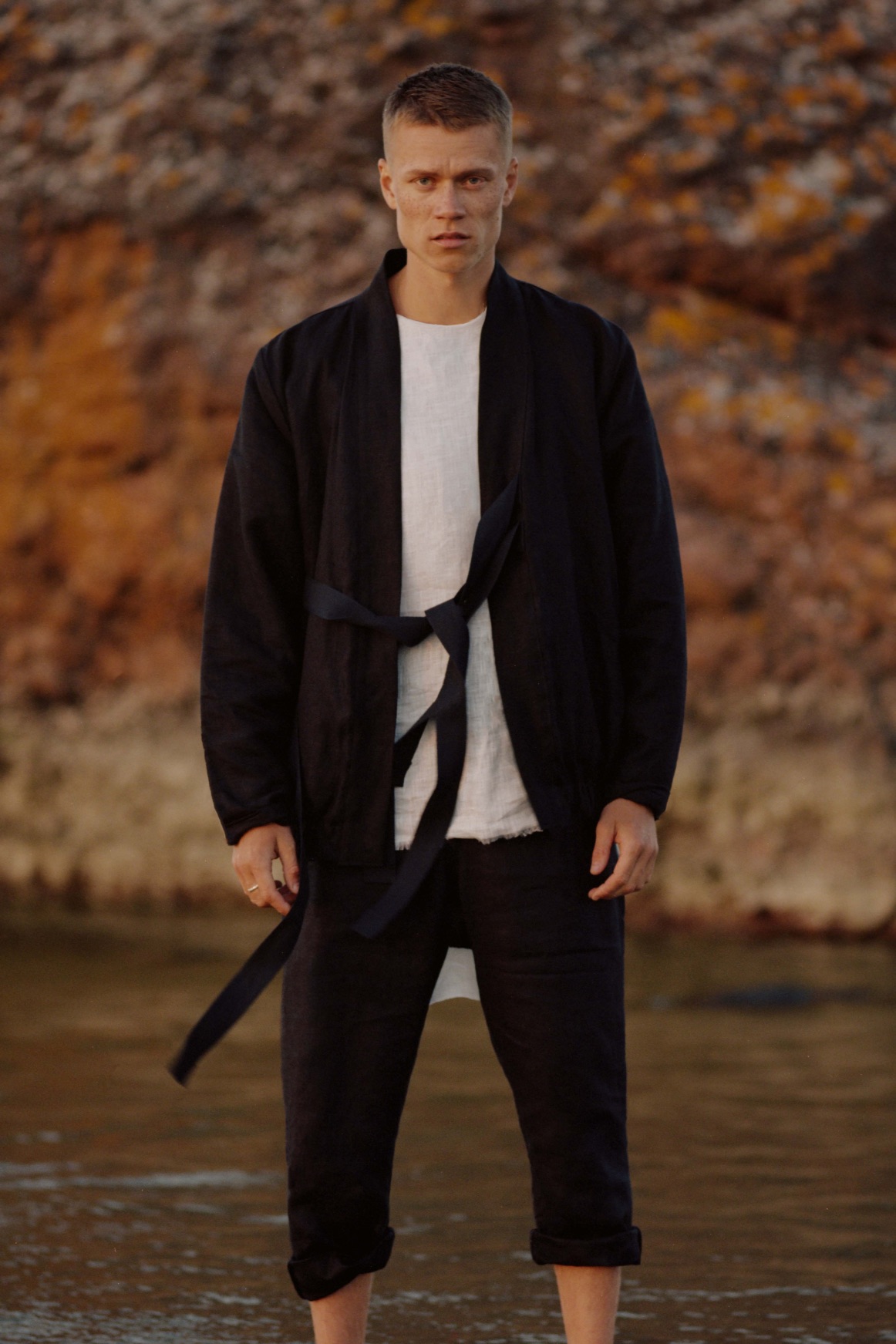
Our zero-waste approach is a process based practice. As we design, we focus on not leaving a footprint and therefore all of our leftovers and thread ends will be used in the same design or in the next one. During the design process we are not just thinking in a zero-waste way about the clothing but also a lot of thought goes into the presentation. The packaging has to have an additional purpose and in that case we often present clothes as products in tote bags. Anu Rieberg hang tags are made on seed paper by a local printing shop Labora. These tags can be planted after the useful information has been read and then they will become something else by enriching naturally our habitat. These steps help to complete a zero-waste design process which stands as a cornerstone of our brand. Every element in the design process is personal and so are the fabrics that we use. For us it is important to use and promote natural fabrics. Right now we are purchasing linen fabrics from a local Estonian vendor Tekser who is one of the retailers of the Orsha Linen Mill, a Belorussian linen manufacturer which is the largest of its kind in Europe. In addition to special orders from Orsha, the local vendor orders leftover fabrics from the mill. Our efforts contribute to the zero-waste design culture and that is the most important reason of using leftover fabrics. In addition we are very interested in these leftovers because for us they have many overlooked traits. One of them is uniqueness. We embrace the linen because every centimeter of the fabric is different and the leftovers showcase it the best. Each flaw from the manufacture process adds a certain personality attribute to the design and makes it more interesting to look at. Through that every finished design becomes a one-of-a-kind piece of clothing.
